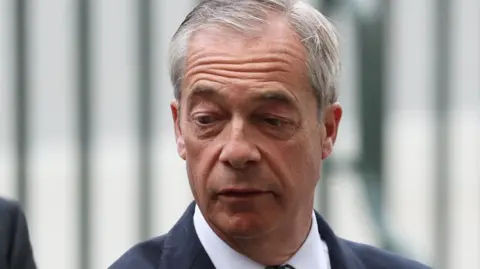Nigel Farage, the leader of Reform UK, has made a significant political promise that could impact pensioners across the country. He committed to reinstating winter fuel payments for the elderly and abolishing the two-child benefit cap if his party secures a position in government. This announcement is expected to be formally presented at a press conference in the coming week, reflecting a strategic move to gain traction on issues that are increasingly pressing among the electorate. Farage’s stance comes at a time of considerable scrutiny and pressure on the Labour Party, particularly directed at Prime Minister Sir Keir Starmer regarding his handling of benefit policies.
The urgency for a response to the winter fuel payment cuts has been a heated topic within Labor, especially following recent critiques from within the party itself. Starmer’s approach has been one marked by caution, with indications that he might ease restrictions on winter fuel payments, although specifics regarding the timeline or the nature of these changes remain unclear. Moreover, indications from Labour sources suggest that Starmer privately supports reevaluating the two-child benefit cap, a contentious policy that has faced backlash from various party members, illustrating the existing rifts within Labour.
One of the alarming statistics revealed is that over 10 million pensioners were excluded from winter fuel payments worth up to £300 when the eligibility criteria were narrowed to only those receiving pension credit. This move has been met with significant backlash, leading to Starmer’s recent commitment to reassess the winter fuel payments, suggesting a potential U-turn that could mitigate political fallout.
The winter fuel payment serves as a financial lifeline, providing £200 annually for households with a pensioner below 80 years old, and £300 for those whose pensioners exceed this age. In a climate where comfort and financial security during winter months are critical for older individuals, the removal of this benefit has raised concerns over the potential exacerbation of poverty and hardship among the elderly population.
On the matter of the two-child benefit cap, which has historically limited families from claiming support for any third or additional children born post-April 2017, there is growing unrest within Labour ranks. This policy, introduced under the Conservative government, is estimated to impact approximately 1.5 million families and has drawn substantial criticism. Calls for the removal of this cap have intensified, especially as reports emerge of Starmer’s private backing for its repeal. The requirements for policy changes have also been influenced by an impending child poverty strategy that, although due for publication earlier this year, remains in limbo as it undergoes further evaluation and discussions regarding remediated measures.
Farage’s announcement reinforces the notion that Reform UK is positioning itself as a crucial player in the political arena, arguably gaining ground over Labour on these critical social issue debates. With reforms centered on welfare payments and their implications, the stakes are high, and Labour may find itself under increasing pressure to publicly address these pivotal matters, lest it risks losing the political narrative to Reform UK’s promises.
As this political drama unfolds, it remains to be seen whether Labour will take decisive action in favor of vulnerable populations or whether Farage’s Reform UK will successfully shift the political conversation in their favor. The landscape is poised for a potentially significant shift as pensions, child benefits, and cap policies become front and center in the public and political discourse in anticipation of the next general election.



